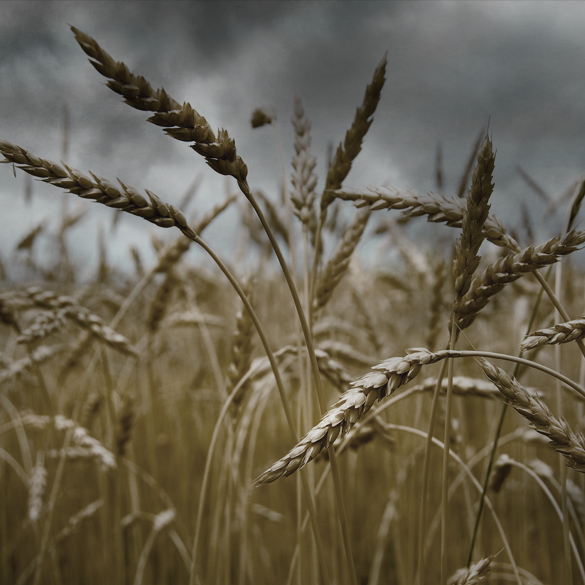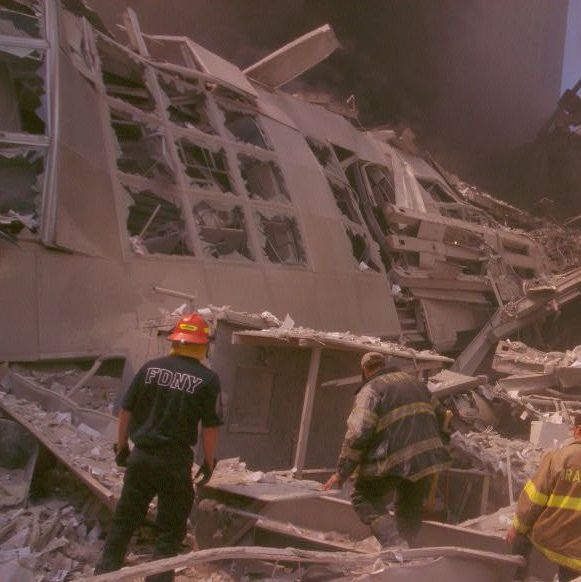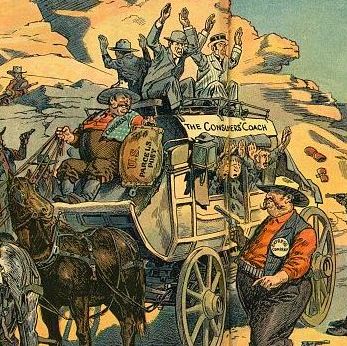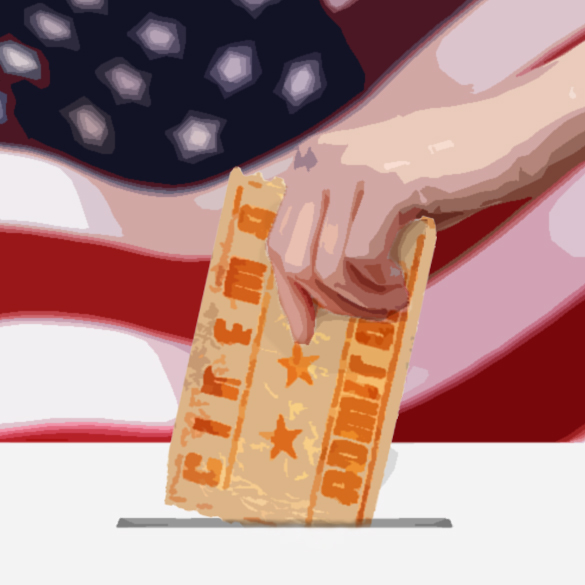Hoof beats echoed through the gentle rain and brought the ploughman to his senses. He sighed and let the soil trickle through his fingers, back to the ground where it belonged. ‘It’s just not what it used to be,’ he muttered, allowing the wind to swallow his words.
“Hello there!” The old man turned around and leant on his staff. His beard was matted with sweat, and his grey eyes looked older and wiser than ever. “Have you heard the news?”
“I haven’t.” Mr. Slater leapt from his mount and landed in the mud. His features were bright with excitement, and he leant towards the ploughman like a conspirator.
“It’s happened, we’re at war.”
“Oh.” The ploughman busied himself with the horse’s harness, tightening the straps and checking the coat for blemishes. Before long, the horse would be too old to work. “Is that all?”
“What do you mean? It’s exciting! They say it’s going to be over before Christmas, so I’m sending young Joe to the barracks.”
“But you’ll have no young hands on the farm! What if something happens?”
“The war will be the making of the boy.”
The ploughman clicked his tongue and the tired stallion trudged forwards, dragging the cart through the mud.
“Of course, I’ll have to hire some help, but it’ll only be for a couple of months.”
“I see.”
The rain was heavier now, and Ellison looked at the sky.
“I say, Jack—why are you outside in this weather? Can’t you wait until the morning? This is no time to be baling—we’re at war, don’t you know?”
The ploughman whistled softly and the horse slowed to a halt.
“What does the war have to do with me? I just don’t have the time, Joe. I just don’t have the time.”
***
It was dark when he hung up the harness and led the horse in to the stable, and the rain had been replaced by a cacophony of hoots and birdsong. It was cold for a night in July, but Jack welcomed the reprieve after a day of sweating in the fields. He patted his pockets and pulled out a beautiful, hand-carved pipe, and he was soon filling his lungs with cheap tobacco. He was so absorbed in his thoughts that he didn’t notice the figure beside the farmhouse until it rose to greet him.
“Jack?”
“Good evening.” The young farmer walked over and shook the ploughman’s hand by the moonlight. “What brings you here so late?”
“‘Have you heard the news? I’ve been thinking about it all day.” Excitement shone in his eyes, and he vibrated with patriotism. “We’re at war!”
“Yes, I know.”
“I’m signing up tomorrow. Tess will try to look after the farm, but I suppose I’ll have to get a couple of boys in from the village. It’s no work for a woman, although I’m sure her father will be happy to help where he can. He used to be a farm-boy himself, as a lad. It’s not ideal, but it’ll all be over before Christmas. They’ll only have to take care of the harvest, and I’ve trusted them with that before.”
“I’ll keep an eye on them when I can.”
“That would be amazing. To tell the truth, I came here hoping to ask for something similar.” The ploughman smiled and invited his neighbor inside, but he declined the offer. “I can’t stay, Jack,” he said, lifting his hat from the low wall. “There’s a war to prepare for.”
***
The nights grew longer and the days grew colder, but the ploughman worked stoically on. Ellison Jr. and Mr. Slater were fighting for their country, and the old man kept his promise and checked on the neighboring farms. Then the winter came.
The ground and the work grew harder, and the ploughman toiled from sunrise to sunset. The harvest was good, and there was plenty of work to keep him busy until the sowing season. Fences needed fixing and hay needed baling. Even Mary, the elderly horse, needed new shoes.
Late one night, when Jack was sitting alone in front of a roaring fire, he heard a heavy knock at the door. With a sigh, he threw another log on to the fire and walked across the cold floor to answer it. As an afterthought, he took his shotgun from the wall and pointed it through the crack in the door.
“Who is it?” he growled. He wasn’t used to visitors, and it was unheard of for a stranger to knock on his door at night. “I warn you, I’m armed.” A pitiful whimper echoed through the darkness, and Jack recognized the voice but not the tone.
“Don’t shoot!” it cried. “Please, Jack – it’s me!”
The ploughman lowered his weapon and pushed the door open, giving the visitor a glimpse of the fire. Mr. Slater was a mess – his face was pale and gaunt and his hair was matted with sweat. He was wearing his army uniform, but one of the arms hung uselessly at his side. He noticed the ploughman’s unhappy stare and explained.
“I lost my arm to a German shell, so they sent me home. The fools, I’ve got plenty of fight left in me.” The ploughman stared sadly at the empty sleeve.
“I think you’d better come inside,” he said, standing aside for the young man to enter. “Let’s have a nip of whiskey and you can tell me all about it.”
***
Winter dragged on and money was growing short. Jack ate Christmas dinner with the Slaters, and he agreed to help on their farm in exchange for a patch of land, which he could use to grow for himself. He would’ve preferred to avoid the work, but he hadn’t the heart to refuse. The shell shock had set in and Slater was finding it hard to concentrate on agriculture. His wife tried to support him, but life isn’t easy for a one-armed farmer. Even with the help of his horses, it was difficult for him to work the fields and to cart his produce to the market.
But eventually the ground began to thaw and the trees started to blossom. Christmas passed and the end of the war seemed further away than ever. The agricultural season began again, and the ploughman’s hours grew longer and harder. Then, news came from abroad.
He was enjoying a rare respite from work, drinking local scrumpy in the village pub with Mr. Slater. They’d finished work early and were discussing new advancements in machinery when Ellison rushed in, brandishing an empty bottle and wobbling on the spot.
“Pint of whiskey,” he demanded, approaching the elderly landlady and breathing fumes all over her.
“Quick, before I fetch my shotgun.” At the other end of the bar, her husband looked up from his cards and grunted.
“If you’re looking for trouble, you can walk out of that door and find somewhere else. I’m not having any violence.”
“You, sir, are good for nothing.” Slater was already on his feet, but the ploughman was slower to rise. It took their combined strength to shepherd him out of the front door and in to the cool night.
“What’s wrong with you?” they demanded, as they began the long walk back to Ellison’s farm.
“I got a letter,” he replied, and began to cry. They weren’t the delicate, gentle tears of a woman scorned – it was a deluge of sorrow, like sweat dripping from the eyes. “It’s my son, he’s dead!”
The three men paused, and Mr. Ellison fell to his knees. Nobody spoke, and the clouds obscured the moon and covered the stars like a curtain. The farmers tried to pull the mourning father to his feet, but he was stubborn and had gravity on his side. Finally, he looked up at them, with a face that was worn by age and pain.
“If I wasn’t afraid of damnation, I might have done something stupid.”
“Don’t talk like that,” said the ploughman, crouching down beside him. “Things are never that bad.”
“He’s right,” said Slater. “You need to sober up and look at things properly. Is this what your son would want? Kneeling in a ditch, abandoning your wife, your farm, your sanity?” The distraught farmer shook his head and climbed unsteadily to his feet.
“I suppose you’re right. I need to talk to a priest. Jack, would you be kind enough to walk me home?”
“You know me, Joe. Always happy to help.”
***
The season pressed on and Slater was still struggling to adapt to a one-armed lifestyle. Mr. Ellison was still in mourning, and he worked the fields in a mud-spattered funeral suit. As for the ploughman, he was working harder than ever. He started before dawn and finished after sunset, and he lived on four hours of sleep. None of the farmers were making money, and they were living on their own produce. Then came the great storm.
The animals were restless all day, and the ploughman’s muscles were so stiff that he struggled to climb out of bed. His staff had fallen away in the night, and it was too far away for him to reach. He had to pull himself up on the dusty dressing table, and that meant getting up on the wrong side of the bed.
The storm grew throughout the day, starting with a fine rain that gathered in speed and ferocity. By the late afternoon, all of the farmers were seeking shelter inside their houses, and it grew angrier than ever after the sun went down. The glass rattled in the windowpanes and screamed as the rain flew in to it. The ploughman sat before the fire, warming his old bones as he waited for the weather to change. Nearby, Mr. Ellison drank gin and argued with his wife, and the Slaters bedded down with their newborn. It felt as though the whole world was waiting for the morning, which rolled around inevitably with a brand new sun and a terrifying silence.
Jack was the first of the farmers to rise—he struggled to sleep when the work was over, and the angry wind and the empty house conspired to keep him awake. He dressed quickly and lit his pipe, but it was a long time before he dared to leave the house and inspect the damage. When he did, he wished that he’d stayed in bed.
All of his hard work was wasted. The farm lay in ruins, ravaged by the storm. Where the crops weren’t underwater, they’d been ripped out of the ground or battered so badly that they were fit for nothing. The fences had been ripped apart, and they littered the fields like bodies on a battlefield. Most of the animals had wandered off in to the night, and Mary, the elderly horse, was dead. Judging from the chaos inside her stall, she’d panicked and tried to break the walls with her heavy feet. The ploughman stood atop a knoll and surveyed his farm, and he wept.
***
The ploughman worked hard to repair the damage and to cut his losses, but the season was drawing to an end and there was little that he could do. He couldn’t believe that so much could be destroyed in such a short space of time. He managed to recover a scattering of his livestock and he had some grain in storage, but he knew that it wasn’t enough to last the winter. That was why he hobbled across the lazy countryside to the Slaters’ farm on the other side of the village.
Mr. Slater was still working when he arrived, but his young wife made the ploughman comfortable with a cup of strong tea. Half an hour later, he returned from the fields.
“Evening, Jack. How are things? I hope that my wife has provided for you.”
“Thank you, you’re a lucky man.”
“That I am. So what can I do for you?” The ploughman played uncomfortably with his hat, and he stared gloomily in to the fireplace.
“I’m struggling,” he began. “You know all about the damage at my farm and how hard I’ve worked to repair it. I’ve been looking at my supplies, and I don’t have enough to last through the winter.”
“I follow you, Jack,” he said.
“I’m here to ask whether I can harvest my section of your fields. Normally I wouldn’t ask, but…”
“The problem is,” interrupted Slater, rising to his feet. “We’re both grateful for your help, but we have our son to provide for and times are hard. Perhaps if things were better…”
“It’s alright,” he said, shaking his friend by the hand. “I understand.”
“Didn’t Ellison promise a share of his land to you, old friend?” The ploughman smiled, sadly.
“He did. I’ll go right over to see him.”
***
“So what do you say, Joe? Do you think you can help me?” Ellison glanced nervously at his wife and drained his glass.
“I’d love to help you, I really would,” he said, offering the ploughman another drink. “But things aren’t going well. You’ve seen for yourself how our crops failed, and the chickens just aren’t laying. We’ve tried everything, haven’t we dear?”
“We have,” agreed his wife, dutifully. She began to clear the table, but she was waved away by her impatient husband.
“Not now, dear. Can’t you see that we’ve got company?” He turned to the ploughman and apologized. “Now, where were we?”
“You’ve tried everything.”
“Yes, we have. I’m sorry, I’d help you if I could. Didn’t you have a similar deal with Slater?”
“I did,” said Jack. “I’ll pay him a visit.”
***
The autumn drew to an end, and the winter freeze began. All of the farmers were hungry, but the ploughman’s supplies were exhausted. Even his chickens were dead, swallowed with the gruel that sustained him. Now, lying in his bed, too weak to forage for food or to light the fire, he was dying.
With an almighty effort, he lifted his head from the mattress and looked over at the wall. The kind faces of his wife and daughter looked down upon him. He tried to reach out to them, but he didn’t have the strength.
“Elena,” he whispered. “My love.” His family stared down at him, immortalized by the canvas, waiting for him to join them.
A cold wind blew down through the chimney, and the ploughman sobbed himself to sleep. The breeze cut through his bones and his valiant heart surrendered to the inevitable. The English sky grew darker; a storm was on the way.
—
Dane Cobain is an independent poet, musician and storyteller with a passion for language and learning. When he’s not in front of a screen writing stories and poetry, he can be found in front of a screen tweeting as @DaneCobain or developing his website, www.danecobain.com.




Greatly told story as it could be very real. I’ve heard similar stories. Basically this is what most of society has become. Help me, give me; oh, I forgot you helped me out.